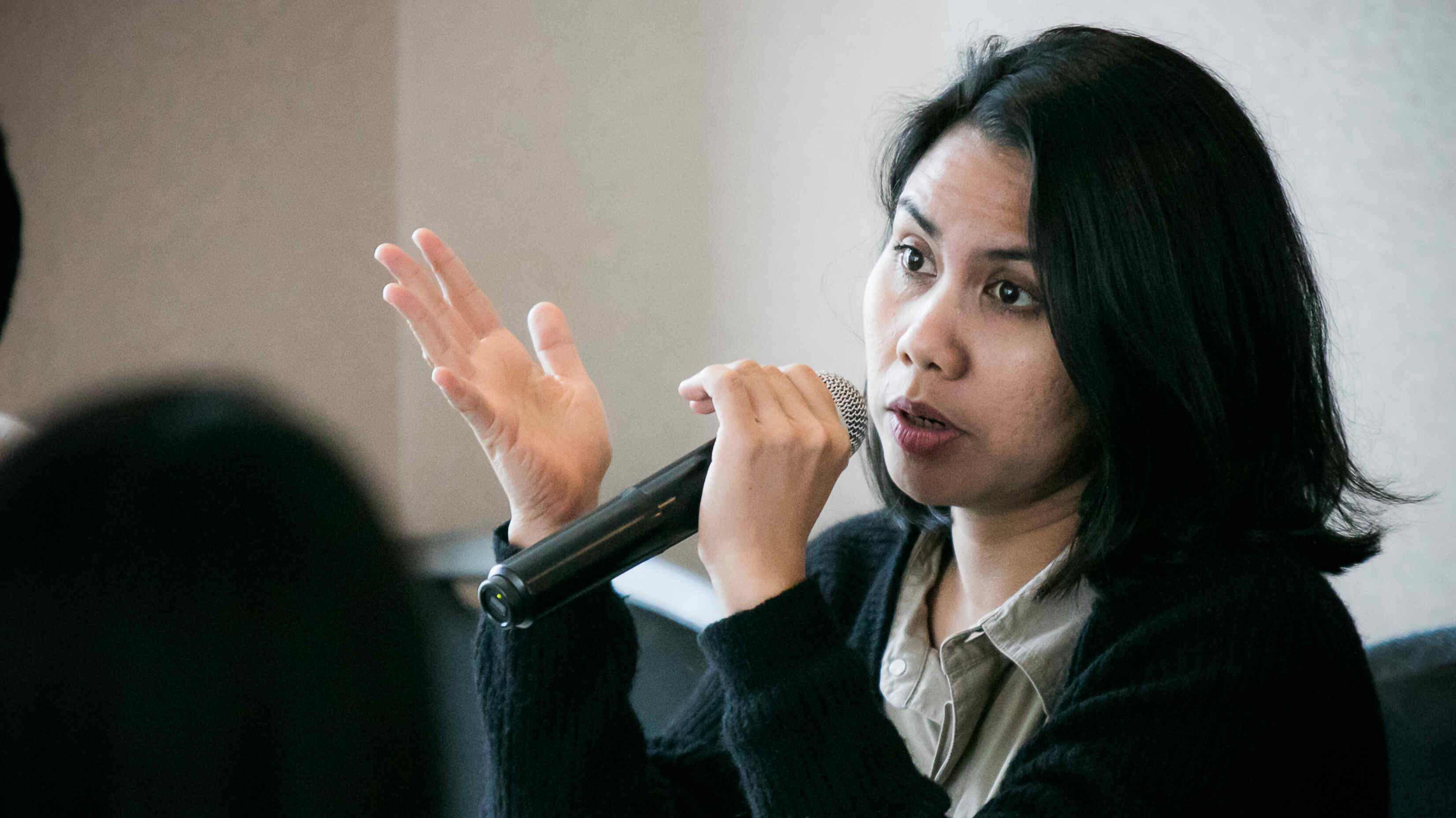FAQ
WHAT IS WWF?
WWF stands for "World Wide Fund for Nature". The name reflects WWF's commitment to working-not only on wildlife issues-but also on other strategic environmental issues. WWF is one of the largest and most experienced conservation organizations in the world, officially founded in 1961. WWF's central secretariat, WWF International, is located in Gland, Switzerland. As a global organization, WWF has a network of more than 80 offices in more than 100 countries around the world. Globally, WWF is supported by more than 5 million supporters.
WHAT IS THE MISSION OF WWF INDONESIA FOUNDATION?
WWF Indonesia Foundation's primary mission is to conserve, restore and equitably manage Indonesia's ecosystems and biodiversity for the sustainability and well-being of all Indonesians, through:
- Implementing and promoting best conservation practices based on science, innovation and traditional wisdom;
- Facilitating the empowerment of vulnerable groups, building coalitions and partnerships with civil society, and working with government and the private sector;
- Promote a strong conservation ethic, awareness and action among Indonesians;
- Advocate and influence relevant policies, laws and institutions to promote better environmental governance.
WHAT IS THE ORGANIZATIONAL STATUS OF THE WWF INDONESIA FOUNDATION?
In 1998, WWF Indonesia Foundation officially became a national organization incorporated as a Foundation. Thus WWF Indonesia Foundation has a legal entity, independent, incorporated in accordance with the provisions in Indonesia. With the status of a foundation, WWF Indonesia Foundation has its own organizational structure, independence and flexibility in raising funds and developing programs.
WHAT IS WWF INDONESIA FOUNDATION?
WWF Indonesia Foundation is an independent national conservation organization and part of the WWF global network. Starting work in Indonesia in 1962 with the Javan Rhino study in Ujung Kulon, WWF Indonesia Foundation is currently active in 34 fieldwork areas in 18 provinces, from Aceh to Papua. Supported by around 500 staff, WWF works with the government, private sector, NGOs, civil society groups, and the public. From 2006 to 2018, WWF Indonesia Foundation is supported by more than 100 thousand supporters in the country.
WHERE DOES THE WWF INDONESIA FOUNDATION GET ITS FUNDING FROM?
WWF-Indonesia does not receive funding from the state budget or regional budget, but receives funding support from more than 40 donor agencies, aid agencies, philanthropy, as well as the support of more than 100,000 supporters throughout Indonesia (2018 data). WWF-Indonesia Foundation's funding sources and financial statements are audited by trusted auditors, and published publicly every year.
WHO IS THE BOARD OF WWF INDONESIA FOUNDATION?
The Board of Trustees of WWF Indonesia consists of the Governing Board, Executive Board, and Supervisory Board. They determine the strategic and financial direction, policy and planning, monitoring the success and importance of WWF Indonesia Foundation within the WWF global network. The Foundation Board supports the CEO and Senior Management Team in the governance and development of the institution and establishes and implements the organization's strategic plan.
WHY IS THE PANDA USED AS A WWF LOGO?
The initial inspiration for the panda as the WWF logo came from the birth of a panda named Chi-chi to the London Zoo not long before WWF was founded. The WWF logo was first designed by environmentalist and artist, Gerald Watterson, while the finalization of the logo was done by Sir Peter Scott, a British ornithologist and painter.
"We wanted an animal that is charismatic, endangered and loved by many people in the world. By using the panda as the logo, we were also able to save money as the logo only requires black ink." So says Sir Peter Scott, co-founder of WWF International about using the panda as WWF's logo.
The giant panda is meant to symbolize all endangered species and represents WWF's commitment to protecting wildlife, including wildlife and their habitats as well as all critical ecosystems on planet Earth. This logo is used by WWF around the world.
CAN I USE THE WWF LOGO FOR PERSONAL USE?
The panda image and the words "WWF" in the WWF logo have been registered as trademarks and are the sole copyright of WWF. The WWF logo cannot be used to promote products or websites other than the official WWF website.
WHO IS WWF WORKING WITH?
WWF-Indonesia collaborates with various parties from the government (both at the local and national levels), corporations, civil society communities, NGOs, academics, and communities living around conservation areas. WWF believes that involving communities in efforts to improve their welfare and provide options to reduce dependence on natural resources is critical to the success of conservation efforts. WWF also believes that dialog is essential for a strong and effective partnership.
HOW CAN I SUPPORT WWF INDONESIA FOUNDATION?
Support for WWF Indonesia Foundation can be given in various ways, including:
Supporter
WWF Indonesia Foundation Supporters is a community of supporters established by WWF Indonesia Foundation to involve the wider public in supporting the vision and mission of WWF Indonesia Foundation through financial support. This program is part of the efforts to raise public awareness of environmental issues as well as fundraising efforts for the sustainability of conservation work. The ways to join as a WWF Indonesia Foundation Supporter include registering online, through face-to-face methods, at our events or through telefundraising methods.
Volunteer
At certain times, WWF Indonesia Foundation needs your support as a volunteer. Opportunities to volunteer with WWF Indonesia Foundation will be announced on the timelines of WWF Indonesia Foundation's social media accounts. Keep an eye on the accounts below:
Twitter: WWF_ID
Instagram: WWF_ID
Facebook: WWF-Indonesia
Youtube: WWF Indonesia

